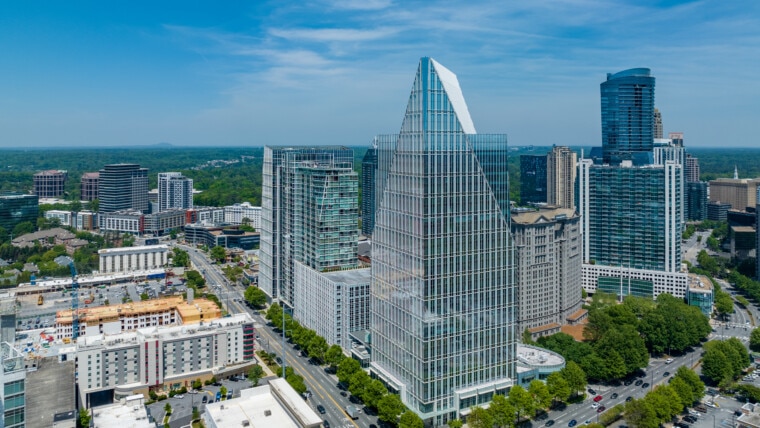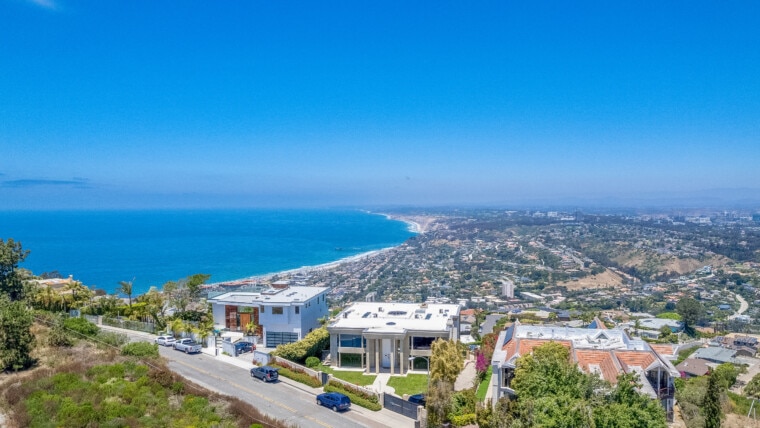There is no question that Virginia has a lot to offer. When you live in Virginia, beautiful natural scenery, great dining options and rich history are all within reach.
Virginia has the ideal mix of rural and urban environments, and you don’t have to travel far to experience both on the same day. You could spend the afternoon at a countryside farm and the evening at a high-end downtown restaurant. Whether you love city or country life, you can have the best of both worlds.
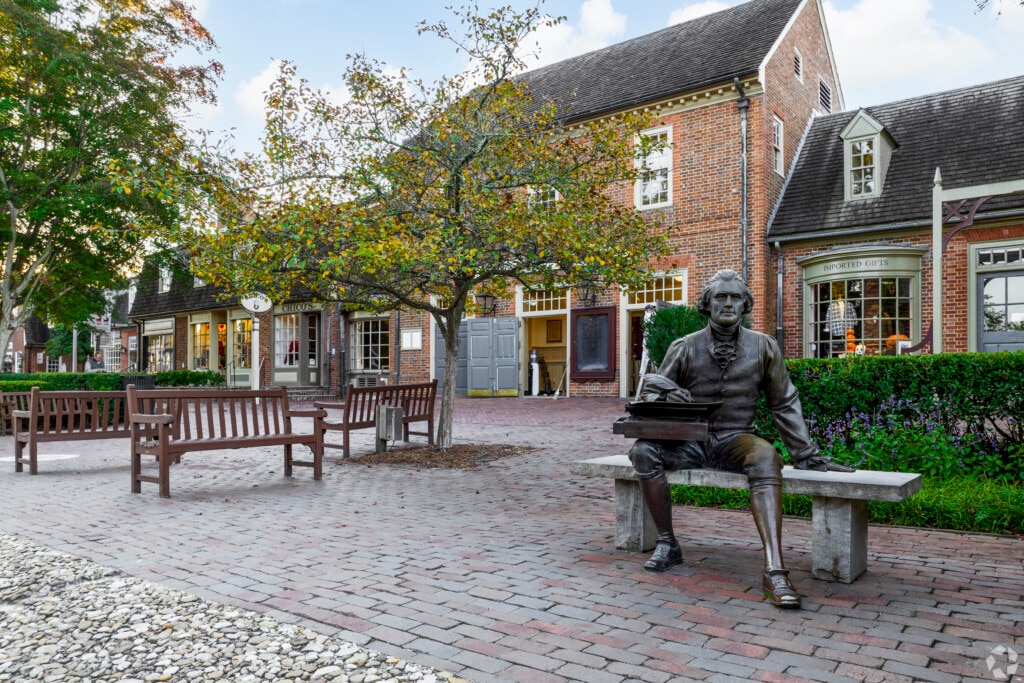
Pros and Cons of Living in Virginia
While many consider Virginia a great place to live, it does have some drawbacks. Before deciding, you’ll want to weigh the pros and cons of living in the Old Dominion.
Pros of Living in Virginia
- Job opportunities: According to the U.S. Census Bureau, the employment rate in Virginia is slightly above the national average at 61%. Prominent companies such as Capital One, Northrop Grumman, and Hilton are headquartered in Virginia.
- Excellent education: Virginia has the fifth-best public schools in the United States, according to a 2023 report published by WalletHub. The state is also home to highly ranked colleges and universities. These include the University of Virginia, Virginia Tech and William & Mary.
- Outdoor recreation: Virginia is a four-season destination offering abundant outdoor activities for every enthusiast. The state is home to 43 state parks and 22 national parks. The park system provides thousands of campsites and more than 700 miles of trails. There’s also plenty to do along the Atlantic Ocean and Chesapeake Bay, as well as in the Blue Ridge Mountains.
- Arts and Cultural Scene: Virginia hosts some of the world’s most famous museums and cultural destinations. Richmond alone offers nine arts and history institutions. These include the Virginia Museum of Fine Arts, the Science Museum of Virginia, the American Civil War Museum and the Black History Museum & Cultural Center of Virginia. Virginia is home to historic areas like Colonial Williamsburg, Jamestown, Mount Vernon and the Virginia War Memorial.
Cons of Living in Virginia
- Heat and Humidity: Think twice about moving to Virginia if you can’t take the heat. In Virginia, it can get downright swampy. Between June and September, temperatures average around 77-80°F and humidity levels rise to 68.7%.
- Traffic and Congestion: Rush hour can have a significant impact on your commute times, specifically in Virginia’s larger cities. It’s particularly bad in the Washington, D.C., suburbs. The Northern Virginia Transportation Authority reports, “It is consistently ranked as one of the top five most congested regions in the United States.”
- Allergies: Spring and Summer can be especially tough for allergy sufferers, and Richmond is the worst place in the state. The Asthma and Allergy Foundation of America ranked Richmond as the 7th most challenging place to live with seasonal allergies.
- Personal Property Taxes: If you own a car, there’s a good chance that you’ll have to pay personal property tax every year. The amount you owe will vary depending on the area of Virginia that you call home. In the Northern Virginia suburb of Fairfax County, the personal property tax rate is 4.57% of your car’s assessed value.
Exploring the Best Places to Live in Virginia
Virginia offers unique settings that suit a variety of lifestyles. Northern Virginia provides career opportunities and close proximity to D.C., while the Shenandoah Valley features mountain views and laid-back charm. Richmond is a hub of culture and history, while Virginia Beach offers 35 miles of coastline to call home.
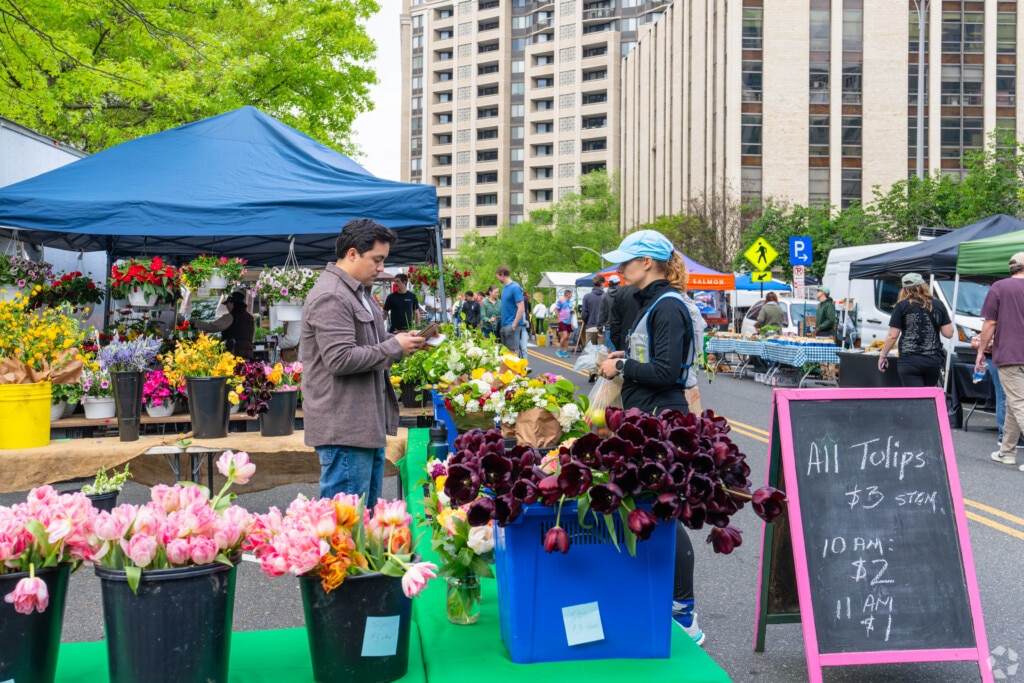
Northern Virginia: A Hub for Jobs and Culture
Northern Virginia’s proximity to Washington, D.C., makes it an ideal location to work and live. This is especially true for young professionals interested in engaging in government and the political world. Alexandria and Arlington are popular suburbs across the bridge from the district. Many NOVA residents also call Fairfax and Loudoun counties their home.
Living in Northern Virginia means experiencing a blend of diverse lifestyles and opportunities. You can spend your workday in the tech sector, travel to wine country for lunch, and then head into D.C. for a show at the Kennedy Center. Northern Virginia tends to have a higher cost of living, while other areas of the state may be more affordable.
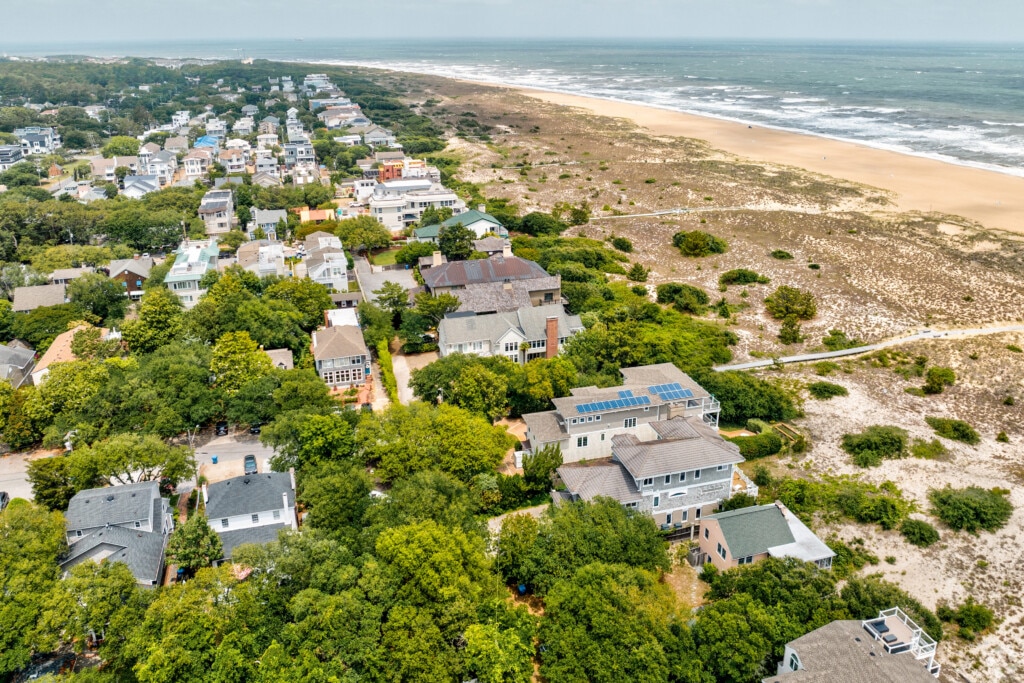
Virginia Beach and Coastal Living
Have you ever dreamed of having a tranquil lifestyle by the ocean that’s still close to urban amenities? Virginia Beach is a seaside gem. It offers a seamless blend of natural beauty, vibrant culture and a desirable quality of life. With 35 miles of coastline, living in Virginia Beach can be like having the ocean in your backyard.
Life in Virginia Beach revolves around its beautiful beaches, from water sports to leisurely sunbathing. With its mild climate, Virginia Beach allows residents to enjoy outdoor activities all year round. Whether you’re a hiking enthusiast, a kayaker or a golf lover, there’s something for everyone. You can explore the trails of First Landing State Park, take out your paddle boat, or tee off at world-class golf courses.
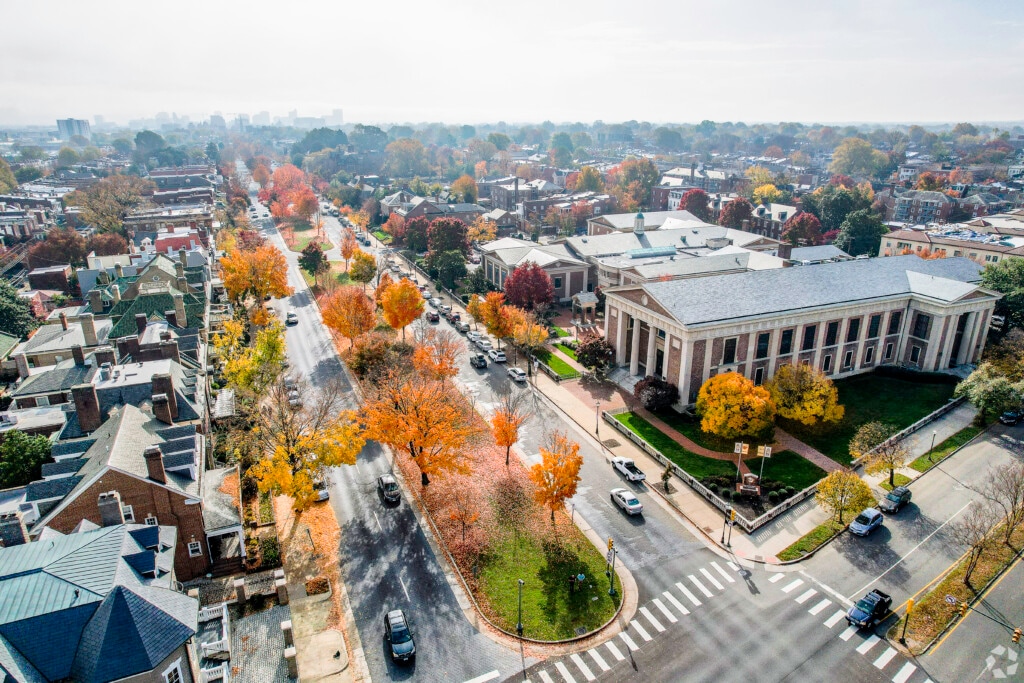
Richmond: A Blend of Urban and Historic Lifestyle
Sitting along the banks of the James River, Richmond is a testament to the rich tapestry of American history and culture. With cobblestone streets and a vibrant arts scene, Richmond offers residents a blend of old-world charm and modern allure.
Richmond was once the capital of the Confederacy during the Civil War, giving the city historical significance. You can tour historical sites such as the iconic St. John’s Church, where Patrick Henry delivered his famous speech. There’s also the Shockoe Slip Historic District. It features cobblestone pathways leading to 19th-century buildings, housing, shops and restaurants.
In addition to its historical landmarks, Richmond is a dynamic arts and cultural center. The city’s Museum District is home to a variety of institutions, including the Virginia Museum of Fine Arts. It has an impressive collection spanning thousands of years and multiple continents.
Richmond is a destination for food lovers. There’s a burgeoning culinary scene that celebrates both traditional Southern cooking and innovative cuisine.
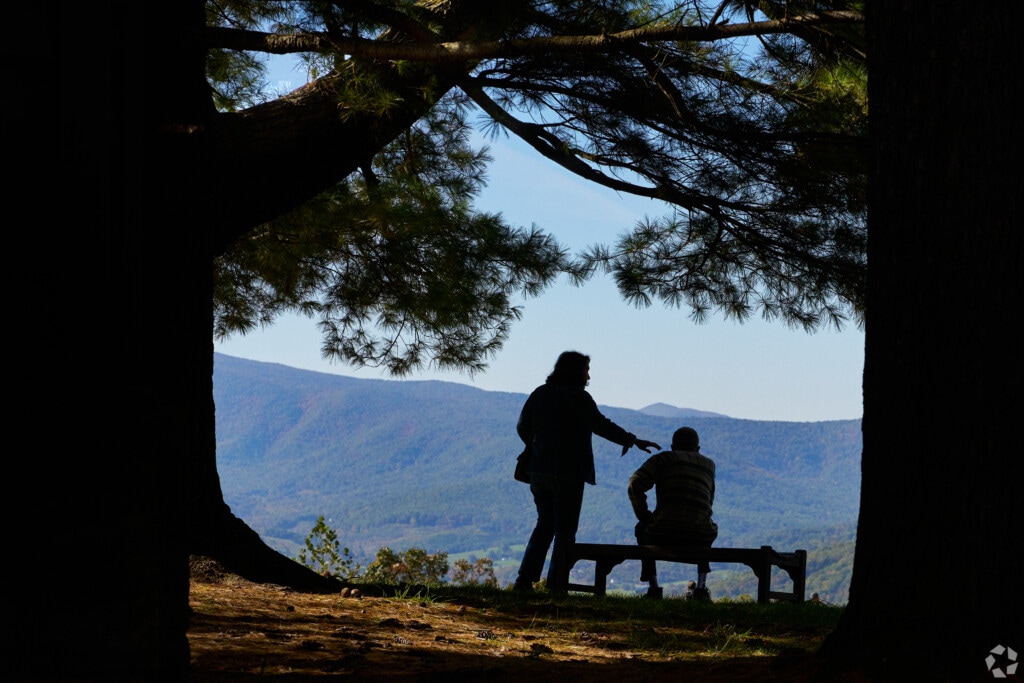
The Serenity of the Blue Ridge Mountain and Shenandoah Valley
Mountain life appeals to those seeking a peaceful retreat from the bustle of city living. The Blue Ridge Mountains and Shenandoah Valley provide everything from outdoor recreation to family-friendly environments and retirement living.
The Blue Ridge Mountains are known for their scenic beauty and outdoor activities. In the laid-back town of Lexington, nestled in the Blue Ridge Mountains, you can enjoy scenic drives through Rockbridge County. Harrisonburg, often called the gateway to the Shenandoah Valley, boasts outdoor recreation, museums, art galleries and local restaurants.
The Shenandoah Valley is home to good schools, community values and child-friendly programs. Highland County is also known as “Virginia’s Switzerland.” It’s one of the least populated counties in the East and is famous for its fresh water and maple syrup.
Ridgecrest is located in the Blue Ridge Mountains. It offers senior apartment amenities such as a wellness program, social activities, and restaurant-style dining.
Financial Aspects: The Cost of Living in Virginia
The cost of living in Virginia varies depending on which part of the state you call home.
A report from the Council for Community and Economic Research (C2ER) indicates that some Northern Virginia cities have a cost of living well above the national average. Alexandria, Virginia, is 24.9% more expensive and Arlington, Virginia, is 32.8% higher.
In contrast, the cost of living in Danville, Virginia, is 10.7% lower than the national average. Similarly, Lynchburg, Virginia, is 8.1% less expensive.
Is Housing Affordable in Virginia?
According to the U.S. Census Bureau, 67.4% of the population owns homes, and the median home value is $365,700. The median rent in Virginia is slightly higher than the national average, at $1,441 per month. Still, home prices can trend much higher, particularly in Northern Virginia.
How Much Money Do People Make in Virginia?
According to the U.S. Census Bureau, the median household income in Virginia is $87,249. Among Virginia’s most populated cities, median household incomes range from $58,988 in Richmond to $132,380 in Arlington.
Educational Opportunities in Virginia
Virginia is home to several highly rated school districts, according to Niche. The public schools in Falls Church and Arlington receive an A+ grade. Meanwhile, school districts in Yorktown, Loudoun, Virginia Beach, Fairfax and Charlottesville receive an A.
Virginia also offers quality educational opportunities, from community colleges to highly rated universities. Top learning institutions include the University of Virginia, which was named the No. 1 college in Virginia by Niche. Additional highly rated universities include Virginia Tech and the College of William & Mary.
Is Virginia a Good Place to Retire?
Yes, Virginia is a great place to retire. The state provides several tax benefits for retirees. Property taxes are low in Virginia, at 0.75%, and Social Security income is exempt from state income tax. There are also tax breaks for residents that are 65 and older. For example, those born on or before January 1, 1956 may qualify for an age deduction of up to $12,000.
Virginia also has a robust healthcare system, with 95 hospitals statewide. Retirees will find dedicated geriatric and gerontology centers in key cities like Blacksburg, Norfolk and Richmond.
Fairs and Festivals: An Opportunity to Meet Friends and Neighbors
Not a weekend goes by without a fair, festival or seasonal activity in Virginia. Some year-round favorites include:
- Virginia State Fair: Held annually in September at The Meadow Event Park in Doswell. It offers carnival games, rides, live entertainment, and typical fair treats like cotton candy and funnel cakes. There are also Virginia favorites like barbecue chicken and peanuts. There are also agricultural and livestock competitions and exhibitions.
- Juneteenth Freedom Festival: a free community festival featuring musical entertainment, food and craft vendors, and children’s activities.
- Virginia Film Festival: Now in its 37th year, the festival is presented by the University of Virginia and is one of the leading regional film festivals in the country. Celebrity guests have included Meg Ryan, Ethan Hawke, Danny McBride, and Richard Roundtree.
- Colonial Williamsburg Fourth of July Celebration: This event features marching music from the Revolution, a special reading of the Declaration of Independence and a sing-along. It culminates with a spectacular fireworks show above the Governor’s Palace.
The Bottom Line on Living in Virginia
Virginia is a great place to live. It offers all four seasons, rich history and breathtaking natural scenery. There’s an environment for nearly every homebuyer, with homes in rural communities, small towns and dense urban environments.
While Virginia offers something for everyone, you’ll want to make sure that its potential downsides are not dealbreakers. If the pros outweigh the cons, contact a real estate agent to help with your home search.
Susan Pascal’s wealth of journalism experience includes editing Maria Shriver’s weekly Sunday Paper, overseeing three neighborhoods for Patch.com, and writing “Images of America: Agoura Hills,” a book about a historic community in the Santa Monica Mountains. Although she’s a proud New York native with a bachelor’s in communications from New York University, Susan also spent years in the Golden State. As a publicist in the entertainment industry, she worked closely with A-listers like Brad Pitt and Harrison Ford. Susan currently lives in the historic Virginia neighborhood of Church Hill.






